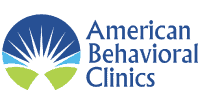Saving Our Daughters: Eating Disorders
I am often asked how to prevent eating disorders in our children, for it is quite common that weight and body image issues plague our kids, especially girls, at a younger and younger age. The ever-growing exposure to media images of thin, beautiful, perfect-looking women set a standard that most women cannot achieve, and all our girls should not strive for. Below you will find a list of suggestions of how you can help prevent these issues from hurting a girl that you love.
- Be aware of your own weight issues. Kids learn by modeling, and if they see a parent dieting, whether or not they are told directly, they will get the message that one needs to lose weight to be beautiful or accepted. Stop weighing yourself and get rid of the scale if you have one.
- Help your daughter develop criteria for self esteem that go beyond appearance, such as relationships, academic successes, or hobbies. If she has a solid sense of self (identity) and a stable self-esteem, research shows she will be more resilient to society’s destructive influences to conform.
- Reduce exposure to negative media images. Research shows that looking at pictures of emaciated fashion models results in lowered self esteem among girls and women. Look for magazines or television shows with more realistic images. When this is not possible, help your daughter to discern the difference between fantasy (few people look like Jennifer Aniston; most magazine photos are airbrushed or digitally perfected) and reality (the average women is 5’4″ and weighs 145lbs).
- Teach your daughter how to exercise for strength, fitness and health, not just weight control. Help her to find team sports, yoga classes or self-defense training as a way to have fun, feel good and take care of herself.
- Help your daughter to expand her definition of beauty and accept differences amongst people in general. Being unique is special and diversity is necessary for survival.
- If there are weight issues, review the family tree. Weight is 3/4 genetics, and it would be unrealistic to expect a child to be significantly thinner than most of her family. Otherwise, try to evaluate if your child is eating for more reasons than just hunger. While it is common to occasionally overeat at holidays or special occasions, normal eaters tend to eat when they’re hungry and stop when they’re full. If she is not doing this, she may have a problem with emotional eating.
- Familiarize yourself with the risk factors and warning signs of negative body image and eating disorders. Perfectionistic, people-pleasing girls are at risk for demanding perfection in their appearance and swallowing their negative feelings, resulting in obsessing about food and weight as a way to feel in control. Watch for preoccupation with food and/or weight, avoidance of eating, binge eating, disappearing after meals, or extreme weight loss as potential indicators of an eating disorder.
- Finally, if your daughter shows signs of depression, emotional eating or extreme dieting or weight loss, seek professional help. Eating disorders and body image issues are easier to treat in the early stages, before they develop into long-standing, fixed patterns of coping that are resistant to intervention.

Dr. Stacey Nye, Ph.D., FAED
Recommended reading:
Reviving Ophelia. Saving The Selves of Adolescent Girls. Mary Pipher, Ballantine Books, 1994.
The Body Project. An Intimate History of American Girls. Joan Jacobs Brumberg, Random House, 1997.
Am I Fat? Helping Young Children Accept Differences in Body Size. Joanne Ikeda & Priscilla Naworski, ETR Associates, 199
“Treatment will make you “weller than well”. It will not cure all of life’s ills. Instead, it helps one deal with issues so adaptively and constructively that the improved functioning is even better than what is considered normal” – Karl Menninger
Existing Patients and New Patients, Call us to schedule an appointment, get a prescription refill or just to ask a question:
New Patients ONLY - Want to contact us through a form? CLICK HERE to fill out our contact form.





